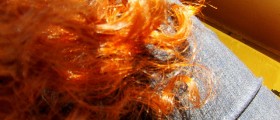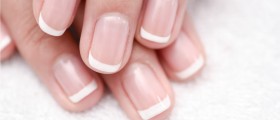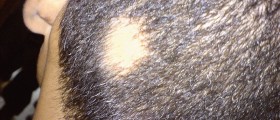
Our hair is a very interesting part of our body. It grows and exists in three different phases. Namely, the growing phase is called anagen, the short phase of the natural hair cycle is called catagen and, here, hair is prone to decaying and breaking down. Finally, telogen is the resting phase of the hair, where existing hairs do not grow anymore and wait for the shedding phase in order to leave our body. About 10% of our hair is in its resting phase. Also, we lose about 150 hairs each day, having new ones growing out to take their place.Causes of Hair Loss
Taking into consideration the cycle of hair growth, numerous factors may inhibit the processes necessary for the birth of new hair on our scalp. People commonly believe that nutrition or an underlying disease are the main causes behind hair loss. However, this is not true. Rather, genetics plays an incredibly important role in the hair growth and maintenance processes. Also, family history regarding hair health as well as the age of the person, all are crucial factors affecting the health of your hair.
Both men and women, entering their 30s, usually notice a slight loss of hair quality manifesting through thinning. Alternatively, hair loss in teen, pregnancy, menopause or puberty stages of life are often connected with hormonal imbalances and can be reversible.
As for diseases triggering hair loss in people, iron deficiency anemia can lead to this phenomenon. Other health problems may lead to hair loss too. Thus, you are advised to seek medical assistance and opinion as soon as your start noticing the symptoms of hair loss. Your family physician, gynecologist or internist, all can help you deal with this problem. Chemotherapy and certain medications can lead to hair loss. So, you need to find the reason behind your hair loss issue and have it treated or reversed.
Hair Loss Prevention
If you are interested in supplements granting you strong hair which will stay on your scalp, iron, zinc, vitamin B, folate and calcium are what you should be looking for. Recently, science has connected lack of vitamin D with hair loss, so you might want to have this one covered as well. Nevertheless, take these supplements in proper dosages, prescribed by your doctor.
As for other types of preventing hair loss, nutrition is one of the most important factors to keep in mind. Eat foods rich in the above mentioned elements and use shampoos and hair products which are ideal for your hair, granting you nothing but health.

















Your thoughts on this
Loading...